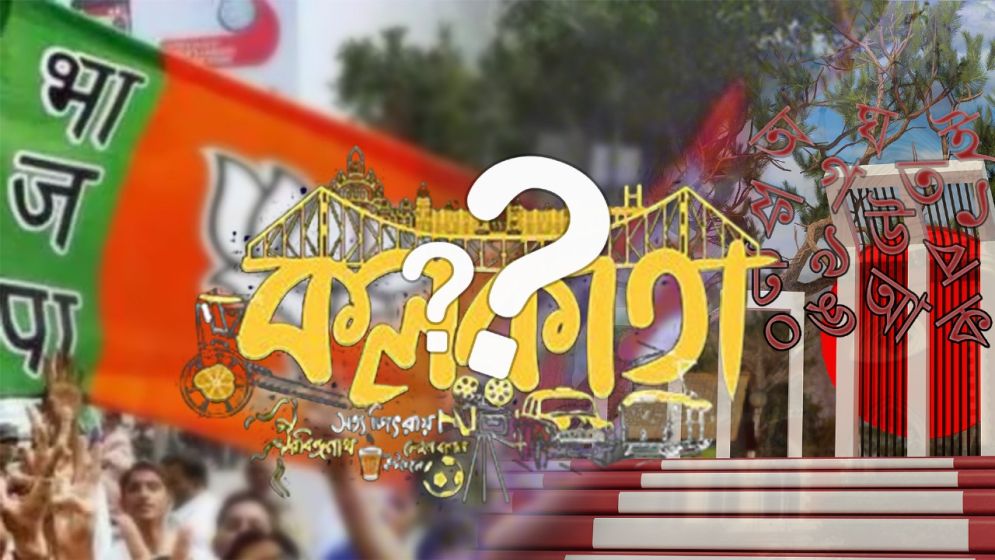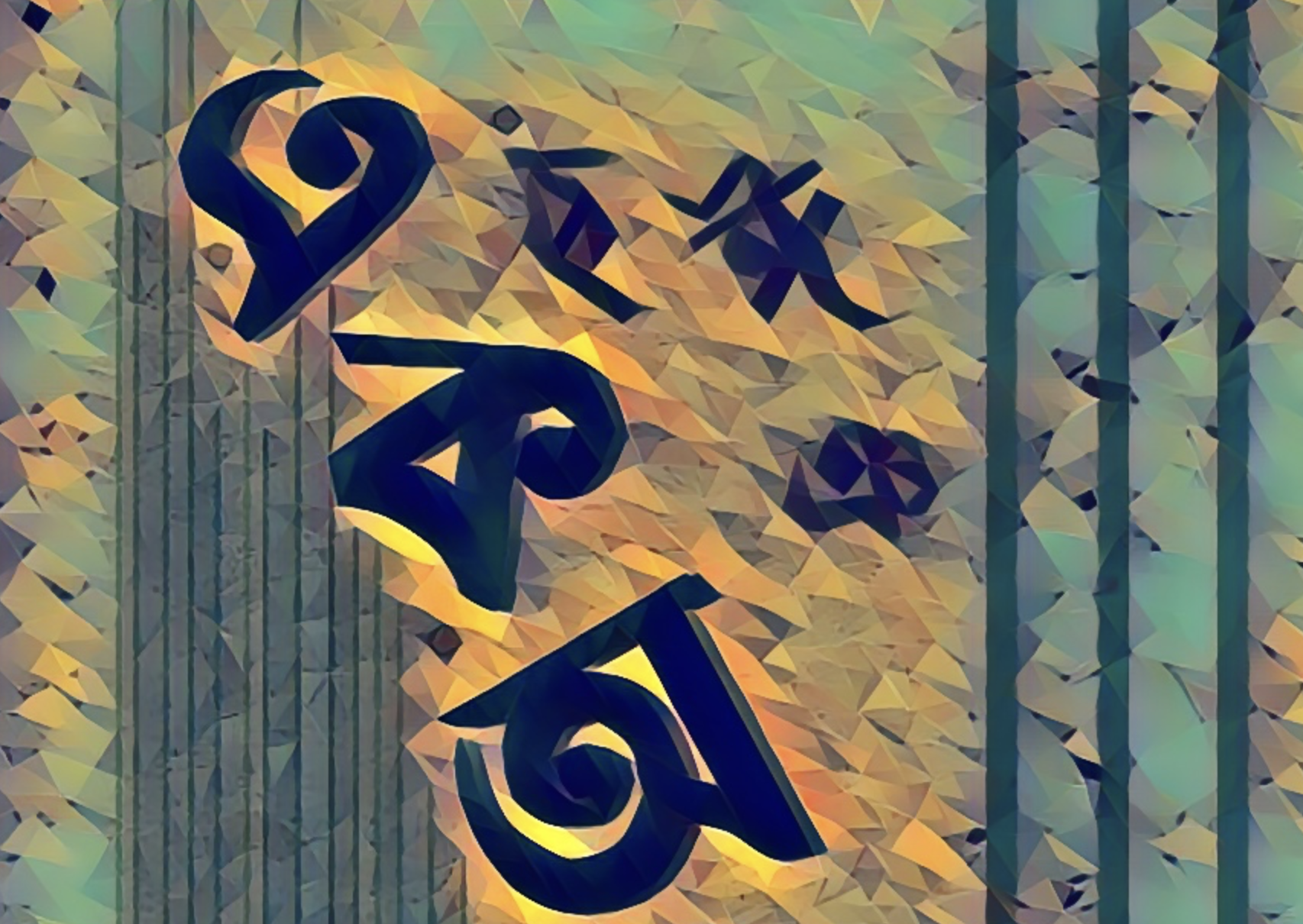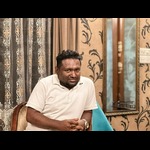Delhi’s ‘slip’ is the truth: Bangladesh ‘owns’ the Bangla language

A few months ago, in an interview with The Week (of India), I made a blunt but necessary observation: If New Delhi genuinely wishes to reset its relationship with Bangladesh, it must first stop taking its cues from Kolkata.
The heart of the problem is simple–Kolkata refuses to see Bangladesh as an independent, sovereign state. Instead, it clings to the notion that Dhaka is a lost cultural appendage, a colony in exile.
This mindset, steeped in a Brahmanical sense of entitlement, remains one of the largest obstacles to building a respectful and modern bilateral relationship.
Kolkata’s attitude toward Bangladesh is shaped by a confused nostalgia–they grasp the idea of a "country" but fail to internalize the political meaning of "state."
Their inability to reckon with Bangladesh’s sovereign identity has led to a consistent misreading of our politics, our culture, and our language. From this cultural arrogance stems an elitist condescension, dressed up in the language of shared heritage but dripping with patronization.
New Delhi, on the other hand, ought to know better. Its foreign policy engages with dozens of diverse states. It understands the nuances of diplomacy and sovereign respect–or at least, it should.
And yet, in this instance, New Delhi has faltered, heavily influenced by Kolkata’s insecurities, its communal biases, and its deep-seated discomfort with Islam and the cultural self-confidence of a Muslim-majority nation next door.
The result is a lopsided, Hasina-centric policy toward Bangladesh that has now fallen flat.
The fact is Kolkata and Dhaka do not speak the same language–culturally, politically, or even linguistically. The so-called “standard Bengali” that dominates Kolkata originates from the Nadia-Shantipur region–a dialect, not a linguistic gold standard.
Bengali, in its full range, is a Bangladeshi language. Dhaka, not Kolkata, is the true capital of the Bengali language. Here, you’ll hear every dialect–even the Kolkata one–and you’ll find people who accept all of them with equal respect.
But step into Kolkata and try speaking in a tone they don’t recognize, and you’re treated like a provincial curiosity. They stare. They judge. And they exclude.
This linguistic rigidity, combined with an anxious inferiority complex in the face of Hindi and English, has left Kolkata’s own dialect culturally brittle.

Why does Bangla thrive
in Bangladesh?
Meanwhile, Bangladesh embraces its internal diversity. We understand that dialects are not hierarchies; they are parallel expressions of a living, breathing language. There is no superiority, only plurality.
But Kolkata has never embraced this plurality. It clings to a Hindu puritanical elitism that sees its own dialect as normative and all others as deviations. This insecurity–masked as cultural pride–is one of the biggest reasons language politics in this region remain so fraught.
For too long, Kolkata has clouded our intellectual and cultural horizons by imposing outdated linguistic hierarchies on us.
It has dictated how we speak, what we consider "standard," and what we should revere–as though language were a museum piece, not a living force shaped by the people who speak it.
But the 2024 mass uprising in Bangladesh has cracked that illusion wide open. It has given us the momentum to break from this inherited submission and reclaim the narrative.
Let me be clear: we are not at war with Kolkata. We do not seek cultural domination–that is not our instinct, and it never has been. On the contrary, we welcome collaboration.
We recognize Kolkata’s literary legacy and cultural contributions as part of our larger Bangladeshi heritage. But they are just that–a part, not the whole. Kolkata is a vibrant branch of a far larger tree whose roots lie deep in Bangladesh.
So no, we will not play the role of cultural aggressor. We don’t need to. Bangladesh is already the only sovereign homeland of the global Bengali identity.
It does not matter what country you hold a passport from, or what faith you follow–your civilizational identity, if you are Bengali, leads back to Dhaka. That is a fact shaped by historical evolution.
Dhaka is the capital of the Bengali language–politically, culturally, emotionally. Full stop.

The latest controversy
Which brings us to a recent controversy. West Bengal Chief Minister Mamata Banerjee lashed out after a letter from the Delhi Police referred to Bengali as a "Bangladeshi language."
She called the phrasing "insulting, anti-national, and unconstitutional." But what exactly is she defending? A colonial-era myth that language follows flags? A fragile nationalism that crumbles when cultural ownership shifts eastward?
Let’s be honest: the Delhi Police got it right–perhaps unintentionally, but truthfully nonetheless. And had Sheikh Hasina not fallen, would this recognition have come at all? I doubt it.
It is only now, in the wake of Bangladesh’s political shake-up, that Delhi is beginning to see past Kolkata’s obstructive prism. That overdue clarity must now extend further.
Aristotle once wrote that the ability to form a state marks a nation's political maturity. The Bengali Muslims of East Bengal–across religious, ethnic, and tribal lines–took that leap on behalf of all Bengalis.
They created a nation. That act cannot be ignored, belittled, or conveniently forgotten by those who still cling to outdated maps of cultural entitlement.
Today, you might be an Indian Bengali, an American Bengali, a Chakma, a Garo, a European academic of Bengali descent–it doesn’t matter. The emotional homeland of your language and identity is Bangladesh.
And Bangladesh will not exclude you. Our cultural ethos is not built on purity or superiority, but on plurality–on the strength of differences held together by a shared civilizational center.
This moment calls for recalibration. If you are Bengali–anywhere in the world–you share a responsibility. A responsibility to help Bangladesh rise as a moral and cultural pole in a multipolar world.
A responsibility to help this country not merely exist but lead. Because in the end, our identity does not depend on validation from Kolkata or even Delhi. It depends on us–and on the future we are willing to claim.
—
Rezaul Karim Rony is a writer and thinker. He is the editor of Joban Magazine.

